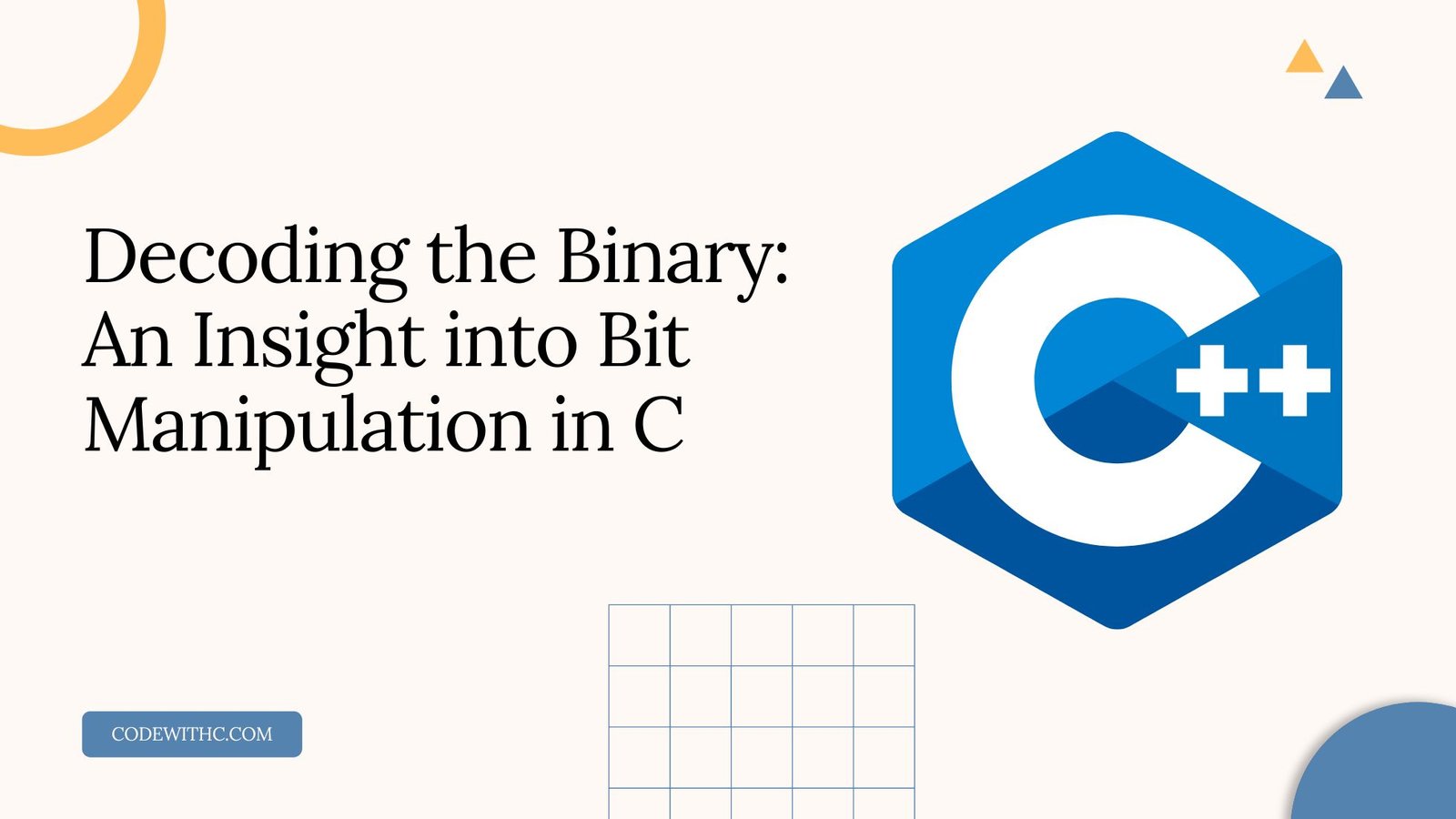Bit Manipulation in C – Hey there, fellow digital locksmiths! ? Bits are the tumblers of the digital locks in our programs, and understanding them can be the key to efficient and elegant solutions. Let’s start our deep dive into bit manipulation in C!
Bit Manipulation in C: The Tiniest Tumblers
In the binary world, every piece of data is represented as a combination of 0s and 1s, the smallest units known as bits. Manipulating these bits directly can lead to some nifty tricks in our programs.
Flipping the Bit: The NOT Operation
Want to flip a bit from 0 to 1, or vice versa? The NOT operation is your tool.
unsigned int num = 5; // binary: 0101
unsigned int result = ~num; // binary: 1010
Code Explanation:
- The NOT operation (
~) inverts each bit. So, 0 becomes 1 and 1 becomes 0.
The Master Key: Bitwise AND, OR, and XOR
These are the essential operations that let us craft the desired combination for our digital locks.
Crafting Combinations: Using AND, OR, and XOR
Code Explanation:
- The NOT operation (
~) inverts each bit. So, 0 becomes 1 and 1 becomes 0.
The Master Key: Bitwise AND, OR, and XOR
These are the essential operations that let us craft the desired combination for our digital locks.
Crafting Combinations: Using AND, OR, and XOR
unsigned int a = 5; // binary: 0101
unsigned int b = 3; // binary: 0011
unsigned int and_result = a & b; // binary: 0001
unsigned int or_result = a | b; // binary: 0111
unsigned int xor_result = a ^ b; // binary: 0110
Code Explanation:
- The AND operation (
&) returns 1 for a bit position if both corresponding bits are 1. - The OR operation (
|) returns 1 if at least one of the corresponding bits is 1. - The XOR operation (
^) returns 1 if the corresponding bits are different.
The Bit Manipulation in C Shift: Sliding Tumblers
Bit shifting allows us to move bits left or right, effectively multiplying or dividing the number by powers of 2.
Sliding the Bits: Left and Right Shifts
unsigned int num = 4; // binary: 0100
unsigned int left_shift = num << 1; // binary: 1000
unsigned int right_shift = num >> 1; // binary: 0010
Code Explanation:
- Left shift (
<<) shifts bits to the left, filling with zeros on the right. - Right shift (
>>) shifts bits to the right, discarding bits shifted off.
The Locksmith’s Wisdom: Use Cases and Efficiency
Bit manipulation is not just a party trick! It’s often used in cryptography, graphics, and situations demanding high-performance solutions. By manipulating bits directly, we often bypass more computationally intensive operations.
Wrapping It Up: The Magic of Bits in C
As we hang up our locksmith’s tools, we realize the immense potential of bit manipulation in C. It’s a realm where understanding the tiniest details can unlock the most intricate solutions.
